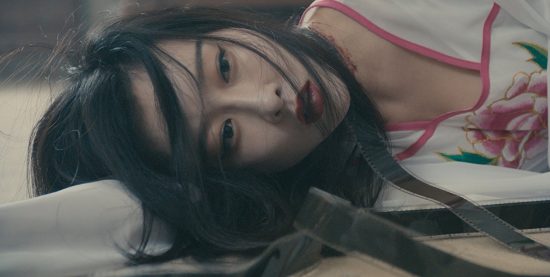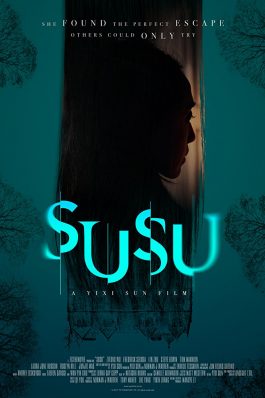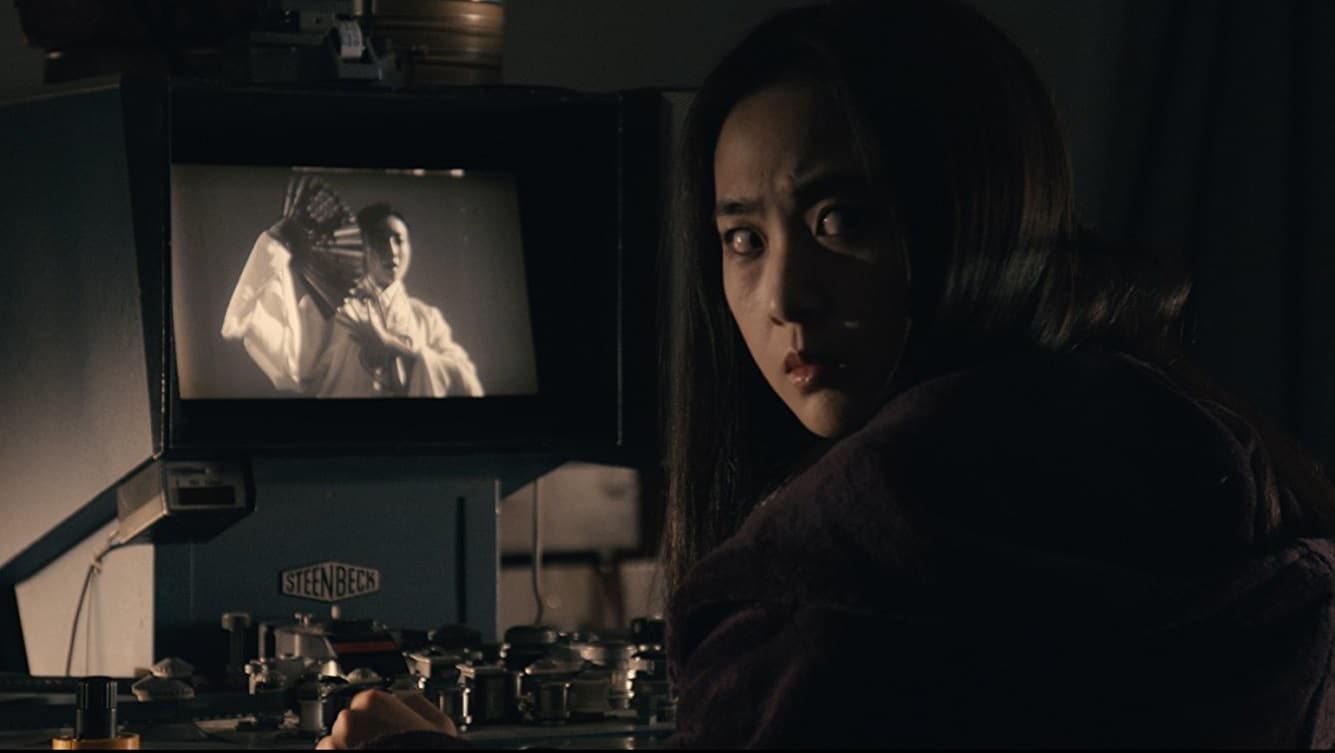 Qian (Zitong Wu) and Aimo (Zhu Lin) are two Chinese students studying in London. In order to make some extra money, they take a weekend job at a country estate transcribing and translating old film footage of famed singer Susu (Junjie Mao). When the friends find things uncomfortable with their strange hosts, Shirley (Steve Edwin), housekeeper Margaret (Laura June Hudson) and Susu’s son Benjamin (Frederick Szkoda), they try to leave, but through various turns and machinations they cannot get back to the city and the mysterious Susu’s story comes to light…
Qian (Zitong Wu) and Aimo (Zhu Lin) are two Chinese students studying in London. In order to make some extra money, they take a weekend job at a country estate transcribing and translating old film footage of famed singer Susu (Junjie Mao). When the friends find things uncomfortable with their strange hosts, Shirley (Steve Edwin), housekeeper Margaret (Laura June Hudson) and Susu’s son Benjamin (Frederick Szkoda), they try to leave, but through various turns and machinations they cannot get back to the city and the mysterious Susu’s story comes to light…
Susu is the debut feature film from writer-director Yixi Sun. There’s a bit too much going on in Susu, and I think that’s ultimately its downfall; however, the story is intriguing and the film shows a lot of promise and potential in its maker. For a debut film it’s perhaps too ambitious – although the film looks gorgeous, its low budget shows in other ways, and the story unfolds rather clumsily. That being said, the story is interesting enough, and unusual enough, that my interest never really waned too much.
Zitong Wu is wonderful as the film’s lead Qian, and she and Zhu Lin’s Aimo hold the film together for the most part. Their story is the one I wanted to see, and there are one or two too many complications involved that distract from it. The performances around them are less strong, some line deliveries being particularly poor, so it’s rather instrumental that Wu and Lin are as convincing as they are.
 Confusing matters are a myriad other characters, including the particularly throwaway role of Joia (Roslyn Hill), a journalist who is researching Susu at the house the same weekend Qian and Aimo stay there. The strangeness of Shirley, Margaret and Benjamin feels like something of a throw-back to eccentric British horror of the 70s and 80s (Susu is produced by British horror legend Norman J Warren), but the film is overall so po-faced that this doesn’t seem to quite work on that level. Other things that feel like throw-backs include the rather unfortunate Shirley, who is a cross-dresser, in what’s really quite a rather out-of-date short hand for, as it transpires, ‘mentally unstable’. There’s no narrative reason for Shirley’s character to play in quite the way it does, and that’s a shame. The film’s final act convolutes and confuses in a way that’s almost unforgiveable, but I had enough sympathy with, and investment in Qian that it just about gets away with it (the very last scene, however, is terrible and should never have made it to the final cut).
Confusing matters are a myriad other characters, including the particularly throwaway role of Joia (Roslyn Hill), a journalist who is researching Susu at the house the same weekend Qian and Aimo stay there. The strangeness of Shirley, Margaret and Benjamin feels like something of a throw-back to eccentric British horror of the 70s and 80s (Susu is produced by British horror legend Norman J Warren), but the film is overall so po-faced that this doesn’t seem to quite work on that level. Other things that feel like throw-backs include the rather unfortunate Shirley, who is a cross-dresser, in what’s really quite a rather out-of-date short hand for, as it transpires, ‘mentally unstable’. There’s no narrative reason for Shirley’s character to play in quite the way it does, and that’s a shame. The film’s final act convolutes and confuses in a way that’s almost unforgiveable, but I had enough sympathy with, and investment in Qian that it just about gets away with it (the very last scene, however, is terrible and should never have made it to the final cut).
Susu, the film’s title character, is predominantly unseen in a mysterious past which is uncovered as the film goes on. Qian and Aimo also have secrets, hinted at but kept mostly hidden, and these parallel stories are the heart of the film for me. There are some interesting inferences to be made in the story about orientalism, exploitation and class, but they’re subtle and, frankly, possibly not even intentional. Had these bigger ideas been eked out a bit more then the serious tone of the film might have made more sense. As it is – with a tendency toward melodrama – the film could really have done with a dose of humour or camp to match.
All in all Susu is perhaps something of a clumsy film. It doesn’t quite seem to know what mode its working in – it uses horror tropes, but its story and feel is pure mystery or melodrama, and these things don’t quite gel together in the finished product. It does look lovely, though, and it has an intriguing story that just about holds up. As a first feature it showcases a great deal of potential, and in that regard it’s certainly worth keeping an eye on.
Susu has its European premiere at the East End Film Festival on 26th April; further details and tickets available here.
